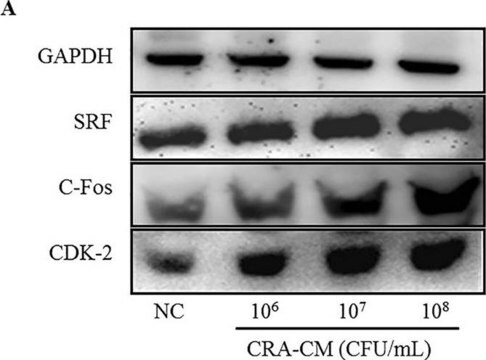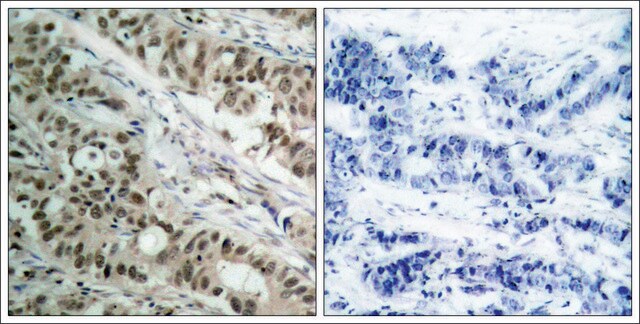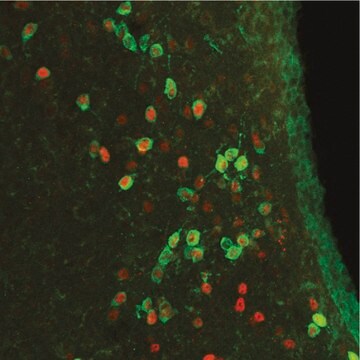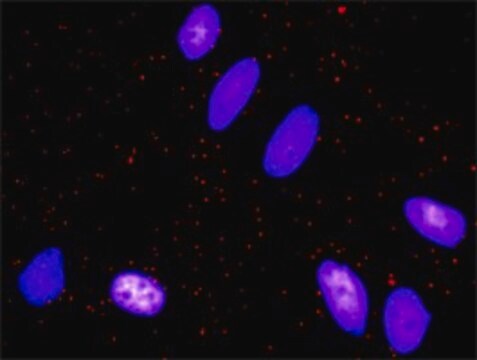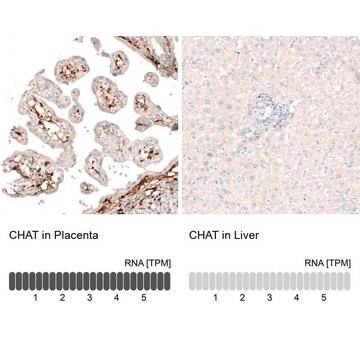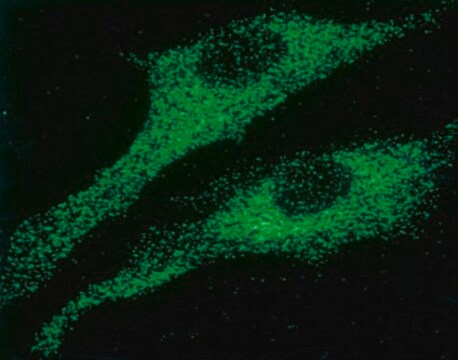SAB2502116
Anti-c-Fos Antibody
goat polyclonal
Synonym(s):
AP-1, C-FOS, FBJ murine osteosarcoma viral (v-fos) oncogene homolog (oncogene FOS), FBJ murine osteosarcoma viral oncogene homolog, p55
About This Item
Recommended Products
Product Name
Anti-FOS antibody produced in goat, affinity isolated antibody, buffered aqueous solution
biological source
goat
Quality Level
conjugate
unconjugated
antibody form
affinity isolated antibody
antibody product type
primary antibodies
clone
polyclonal
form
buffered aqueous solution
species reactivity
pig, human, bovine, canine, cat
technique(s)
immunofluorescence: suitable
immunohistochemistry: suitable
indirect ELISA: suitable
UniProt accession no.
shipped in
wet ice
storage temp.
−20°C
target post-translational modification
unmodified
Gene Information
human ... FOS(2353)
Immunogen
Features and Benefits
Physical form
Disclaimer
Not finding the right product?
Try our Product Selector Tool.
recommended
Storage Class Code
10 - Combustible liquids
WGK
WGK 2
Flash Point(F)
Not applicable
Flash Point(C)
Not applicable
Choose from one of the most recent versions:
Certificates of Analysis (COA)
Don't see the Right Version?
If you require a particular version, you can look up a specific certificate by the Lot or Batch number.
Already Own This Product?
Find documentation for the products that you have recently purchased in the Document Library.
Our team of scientists has experience in all areas of research including Life Science, Material Science, Chemical Synthesis, Chromatography, Analytical and many others.
Contact Technical Service